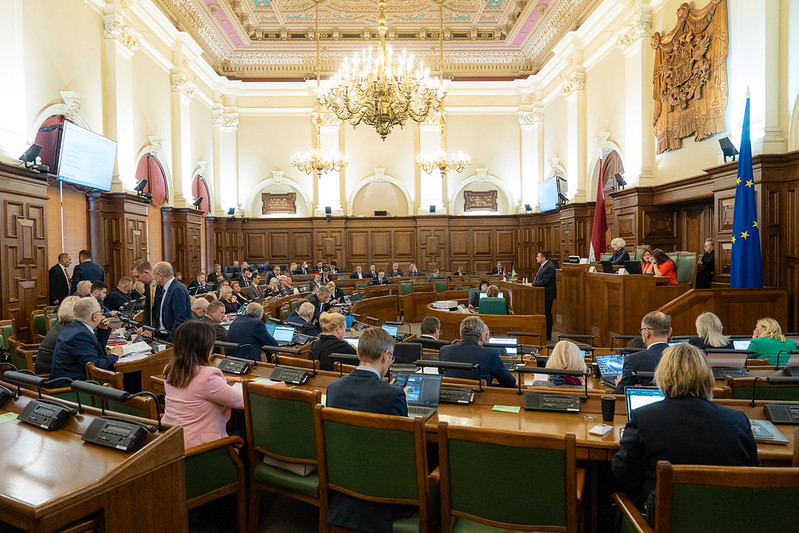There was a five-hour somewhat heated debate before the vote. On Thursday, November 30, ratification of the Istanbul Convention was viewed in both the first and second (final) reading.
The bill was supported by 51 parliamentarians of the coalition factions, barely scraping past the required majority of votes in the 100-seat parliament.
The Istanbul Convention aims to protect women from all forms of violence and to promote effective equality between women and men.
Countries that have adopted the Istanbul Convention should develop a coherent policy on violence against women and domestic violence, as well as inter-institutional cooperation with non-governmental organizations, civil society, and the media. The Convention also stresses the need to compile statistics on cases of violence against women and domestic violence.
Latvia is one of six Member States of the European Union that have not so far ratified the Istanbul Convention. Bulgaria, the Czech Republic, Hungary, Lithuania, and Slovakia have also not done so. Two years ago, the Constitutional Court found the Istanbul Convention compatible with the Latvian Constitution; namely that it does not endanger the values of the Constitution. The Constitutional Court confirmed that the aim of the Istanbul Convention was to eliminate violence against women and domestic violence.
Saeima members have repeatedly argued that no one opposes the fight against violence, but to some deputies the definitions of gender are considered debatable and ambiguous in the Convention.
It should be noted that the Ministry of Welfare added an explanatory Annex to the Convention, emphasizing that the term “social gender” included in the Convention and used in controversial discussions is not related to the obligation to introduce some other understanding of gender in the Latvian legal and educational system. That Annex also received a dose of criticism in the debate, since it was not legally binding.
Early in Thursday's November 30 meeting, there was first a motion to postpone viewing the Istanbul Convention. Deputy Linda Liepiņa from Latvia First based this on recent corrections to the translation of the document. The head of the Saeima Legal Affairs Committee Andrejs Judins of New Unity restated that the amendments offered by the State Language Center are technical and do not change the substance of the Convention.
The call for the Convention to be postponed was rejected by a majority of Members. Moreover, ratification of the Istanbul Convention was considered urgent by majority votes of the Saeima. That vote shows that the government-forming coalition has a slight lead on the issue, with the votes of 52 members present.
Several opposition politicians criticized the decision by coalition MPs to view the Istanbul Convention without interruption. The debate lasted just under five hours. The opposition of the Saeima objects to the progress of this document.
Although the Convention is not comparable to national laws, there were arguments that the laws of Latvia already set everything in the Istanbul Convention in law, while the rest is a failure of the country, MP Linda Matisone from the United List said. The deputy also drew attention to the fact although the government already signed the Istanbul Convention in 2016, there is still no first aid center for victims of sexual violence in Latvia. “It will be political two-facades if the government votes to ratify the Istanbul Convention but does not vote to strengthen police and set up a relief center to protect victims,” Matisone said.
Ainārs Šlesers, leader of Latvia First, addressed several deputies and the Greens and Farmers Union faction, which was previously in opposition to the Saeima but now is in coalition. He accused them of treason in supporting the Istanbul Convention.
Meanwhile, Ramona Petraviča (Latvia First) defended adherence to stereotypes about gender roles because "Latvian culture relies on them".




























